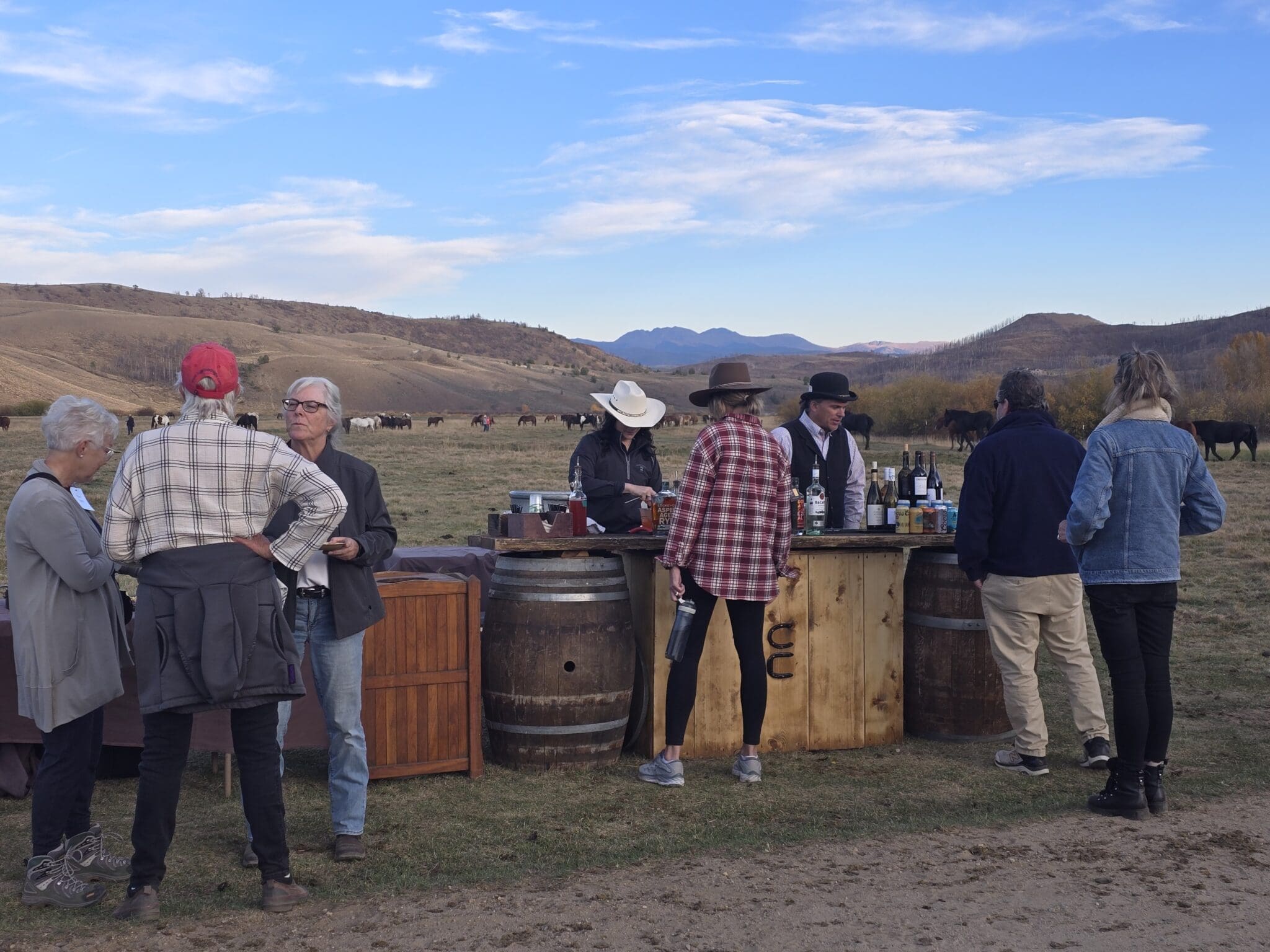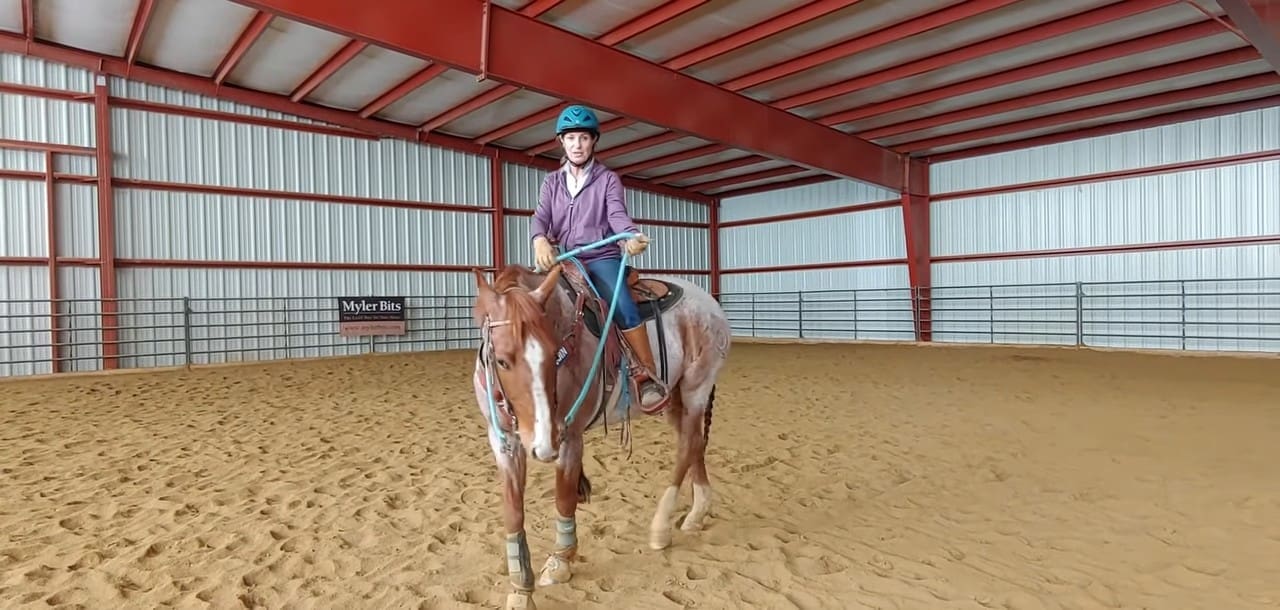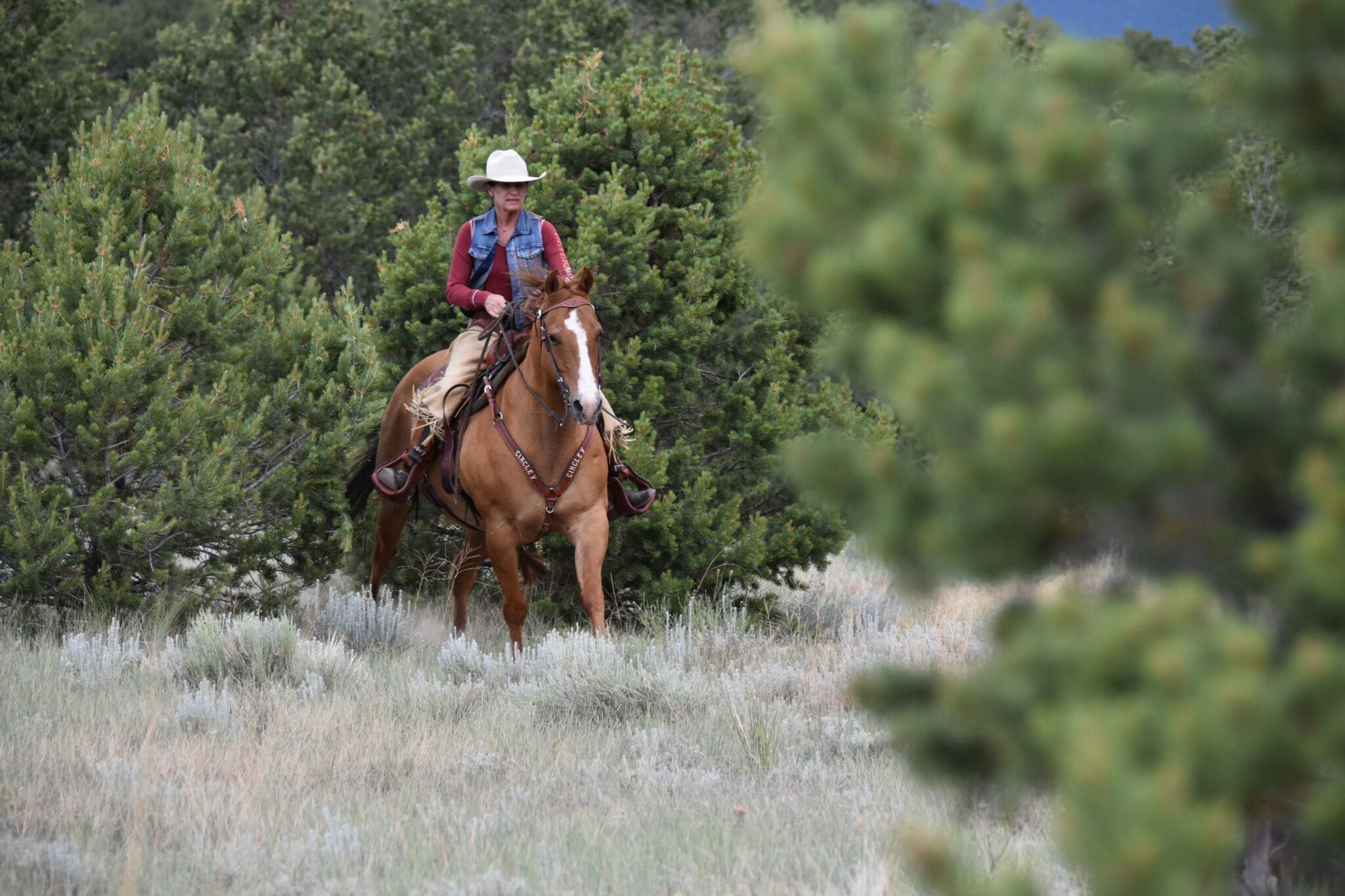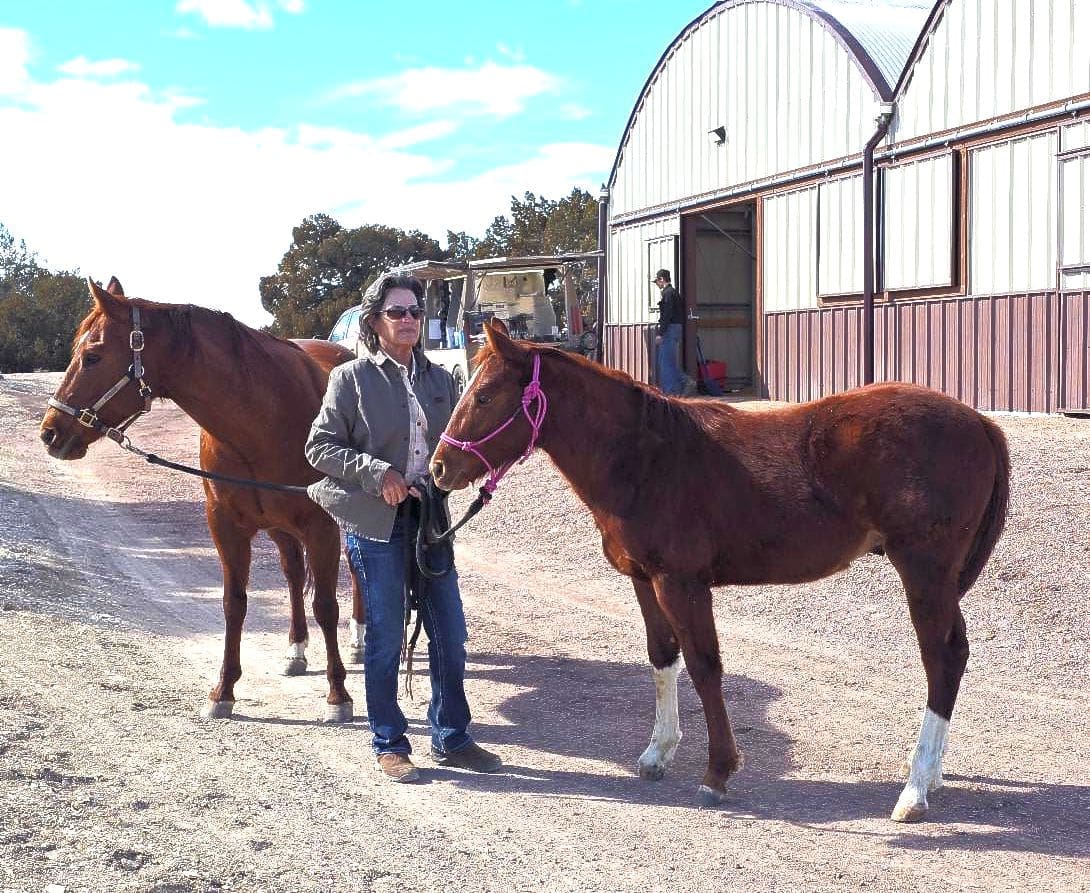Top trainer/clinician Julie Goodnight tells you how to stop your horse from grabbing mouthfuls of grass during trail rides.
Q. My young Quarter Horse gelding is always grabbing a “snack” while I’m riding through tall grass on the trail. I don’t like his eating with a bit in his mouth while we’re walking down the trail. I try to stop him, but nothing works. How can I stop him once and for all?
Colleen Frank
via e-mail
A. You’re right to correct your gelding for snacking during work time. Snacking on the trail is a rude behavior and may be a sign that he doesn’t accept your authority.
While some riders allow the behavior and think of it as a horse’s natural instinct to graze constantly, it’s important to think about how horses act when part of a herdand how they associate food with dominance.

The Problem: Dominance
In the herd, horses establish the herd hierarchy by determining who controls food and water. Dominant horses always eat first and will run the subordinate horses away from the food supply until they’ve had their fill.
Horses think they’re dominant any time you allow them to get to food.
With this in mind, imagine what’s really happening when your gelding drags you toward grass as you’re leading him. And think about who’s really in charge if he’s eating as you ride, pulling the reins away from you to graze at ground level.
In your gelding’s mind, he’s in charge! He shows his dominance by controlling the food. He thinks of you as the subordinate herd member, because you give him first dibs on the tasty grass.
The Fix: Apply Pressure
To fix this bad habit, you’ll need to change who’s in charge in your herd of two. Examine all aspects of your relationship to see whether you can name other areas where your gelding makes decisions, calls the shots, and controls you.
Does your gelding step off without a cue as soon as you mount up? Does he paw and beg for food or treats when you get back to the barn? You’ll need to address all aspects of your relationship to make sure you’re firmly in charge.
When it comes to grass-grabbing on the trail, adhere to an age-old training principle that applies to all animals even humans: Find the amount of pressure that motivates change.
Whatever your gelding is doing at a specific moment is what he’s most motivated to do; in your case, he’s motivated to eat grass while you ride. To change his behavior, you’ll have to find the amount of pressure that motivates him to rethink this action.
It may be a little pressure or a lot, depending on how sensitive your gelding is and how motivated he is to eat grass on the trail. But one thing is for sure it’s more pressure than you’re using now.
Whenever a behavior isn’t changed by your correction, either the timing of the correction is wrong or you aren’t using the necessary amount of pressure.
Pressure can be physical (such as the spank of a rein or having to work hard immediately following an attempt) or mental (such as issuing constant directives that requires your gelding to focus on you).
What to Do
Here’s how to apply pressure to your gelding to correct his behavior and establish yourself as herd leader.
Use one rein. When you correct your gelding for eating grass while riding, jerk up harshly and quickly on one rein. Any time you pull on both reins, you start a tug-of-war with him and you’ll never win that contest. But with one rein, you have control.
Ask him to work. If you’re riding in a flat, safe location with good footing, ask your gelding to work immediately after you correct him. Trot him in one direction, then another. Make him move. Make him associate his grazing behavior with having to work hard.
Be strong. No matter what type of pressure you use, the consequences of eating without your authorization need to be harsh enough to overpower your gelding’s urge to eat.
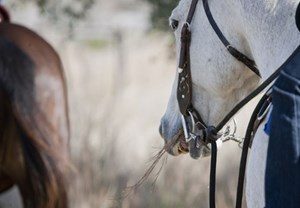
Avoid a Rut
Your grass-grabber thinks of you as the subordinate herd member, because you give him first dibs on the tasty grass. If you’ve been trying to correct your gelding’s grazing behavior for some time with no success, he’s learned to ignore your corrections. He now thinks that you’ll never use enough pressure to bother him.
With this ingrained behavior, you’ve gotten in a rut. Your gelding tries to eat; you say no. He doesn’t worry about the consequence and tries again; you say no. He tries again and on and on.
It’s better to give one strong correction than to get into a nagging relationship such as this. A firm correction will motivate your gelding to change. This is much kinder than pulling on his mouth over and over for years. Make one correction, and be done with it.
Establish your leadership role in your herd of two. Invest time in your young gelding to give him the best manners you can.
This investment will increase your gelding’s value and your riding enjoyment for the rest of his life. He’ll also be better behaved for your veterinarian and farrier.
Horses are happier in the presence of authority.
